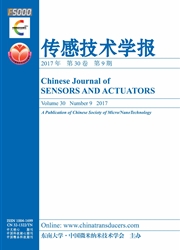

 中文摘要:
中文摘要:
研制了一种可从环境中获取能量的无线传感器节点,该节点用太阳能光伏电池和温差电池作为生能器件,用超级电容器和锂离子电池作为储存器件,并采用低功耗的能量管理策略,实现了能量的充分利用。研究了在夏季和冬季时超级电容器和锂离子电池的充电特性,并给出了无线传感器节点的功率曲线。实验表明,在夏季,太阳能光伏电池和温差电池在四天内可将锂离子电池充满,充满后的锂离子电池可在无光照的情况下保证无线传感器节点连续工作七天。
 英文摘要:
英文摘要:
The wireless sensor node which harvests energy from environment is fabricated. The photovoltaic and thermoelectric generators are adopted as energy converters, and the lithium - ion battery and ultracapaci - tor are used as reservoirs. The low power energy management strategy is adopted, so the energy can be utilized adequately. The charge characteristics of the ultracapacitor and the lithium-ion battery are researched in summer and winter, and the power curve of the wireless sensor node was obtained. The performance test experiment demonstrates that lithium-ion battery can be charged within four days in summer, and it can make the wireless sensor node work for seven days continuously.
 同期刊论文项目
同期刊论文项目
 同项目期刊论文
同项目期刊论文
 期刊信息
期刊信息
